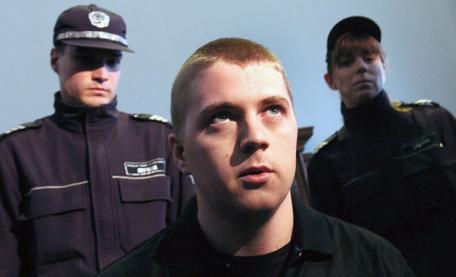In the wake of Haringey’s Baby P scandal, social workers were heavily criticised en mass and those directly involved with the child’s case were vilified. Nobody could understand why action wasn’t taken, especially when another baby, named in the press as Baby B, was taken from his family immediately following suspicions of foul play.
It was a false alarm, baby B’s parents were entirely innocent, yet all three of their children were taken from them. At the end of last year the couple hadn’t seen their children for four years.
Neither case shows social workers at their best, for opposite reasons.
Another alphabet baby, Baby D, was taken from its mother last week, the Observer reported. This time the baby was taken moments after being born, without the mother being told. Social workers interfering again? Well, the mother had given birth in prison where she was serving a sentence for threatening her small daughter with a knife. Probably for the best then… (Although, I’d be interested to hear any arguments to the contrary?).
The point is that, unlike the cases of Baby P and Baby B – where social workers were paralysed and governed by box-ticking – in the case of Baby D, sensible discretion seems to have been shown. Matthew Parris, in his recent Times column, likened this sensible discretion to the judgement based approach of the ‘Governor’s Eyebrow’. Parris writes:
The judgment-based approach is what is meant by the Governor’s eyebrow. At the Bank of England the Governor had the power to raise an eyebrow at a financial practice, murmur that he didn’t care for it, and wave it away without explanation. You could call it the “doesn’t look kosher” rule or the “this stinks” method of adjudication. Parents have their own version in responding to children who keep demanding reasons: “Because”.
[The Tories’ policy chief Oliver Letwin] attacked rule-based regulation. He argued that Haringey social workers had paid too much attention to box-ticking and too little to making their own personal judgment on a vulnerable toddler. Somebody should just have stood back, thought about it, taken a deep breath, and ordered the child to be taken from his mother. Why? Because.
Damned if they do and damned if they don’t, we must be careful not to dissuade people from joining the social care profession. But, slaves to box-ticking, perhaps social workers should be released from the shackles of bureaucracy, to act with a quizzical eyebrow of common sense – an attribute which they should possess in abundance.








 For the flipside – I wouldn’t want to be accused of bias now – an article in
For the flipside – I wouldn’t want to be accused of bias now – an article in 
